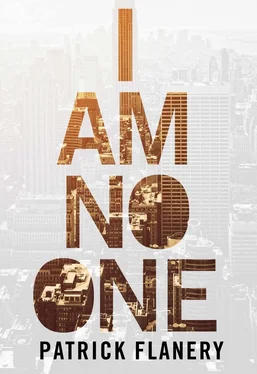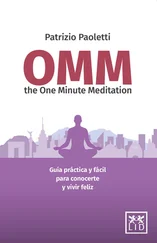Patrick Flanery
I Am No One
NOVEL BEGINS
At the time of my return to New York earlier this year I had been living in Oxford for more than a decade. Having failed to get tenure at Columbia I believed Britain might offer a way to restart my career, though I always planned to move back to America, imagining I would stay abroad for a few years at most. In the interim, however, America has changed so radically — by coincidence I left just after the attacks on New York — that I find myself feeling no less alienated now than I did during those long years in Britain.
Although I acquired British citizenship and owned a house in East Oxford on the rather optimistically named Divinity Road, which becomes gradually more affluent as it rises to the crest of a hill, Britain has no narrative of immigrant assimilation, so for my British colleagues and friends and students, it mattered little that I was legally one of them. First and last, I was and would always be an American. Perhaps if one comes at a younger age total acculturation is possible, but as a man in his forties my habits were too firmly in place to undergo whatever changes might have allowed me to become British in anything other than law.
When I was fresh out of my doctorate at Princeton, New York University was not one of the places I would have chosen to work, but I was thrilled when NYU’s History Department approached me to apply for a professorship and even happier when I was offered the position, assured at last that my years away from home were finished. It is surprising how much displacement can alter the mind, and while I went to Britain entirely of my own accord, I became restive after the first few years and increasingly resentful that I was being denied — it seemed to me then — access to a fully American life. I blamed my former colleagues at Columbia and whatever machinations had led to my not being awarded tenure and having thus to begin afresh as a rather lowly sounding Fellow and University Lecturer at one of Oxford’s older Colleges, which, though founded in the fifteenth century, does not attract the brightest students or have the largest endowment.
Nonetheless, I came to see it as a comfortable place to be, despite the workload being substantially greater than at a comparable American institution since Oxford has continued to teach students individually or in small groups, and there is an ever-expandable duty of pastoral care unlike anything in American academia. I became accustomed to the College chef sending me lunch in my rooms if he was not too busy, often including some tidbit (or as the British say, titbit ) from the previous night’s High Table dinner. There were excellent wines in the College cellars and life ticked on as it had for centuries, with few changes other than the admission of women, which some dons in my time still regarded as an ill-thought-out modernization that had, they insisted, altered the character of Oxford irremediably.
I was lucky with the property market and before returning to New York this past July sold the house on Divinity Road for a staggering million dollars’ profit, which I invested in a house and some land overlooking the Hudson River a couple hours north of the city, while taking up NYU’s generously subsidized housing in the Silver Towers on Houston Street. Beautiful this apartment is not, but it is a five-minute walk to Bobst Library and I have relished being back in a city that feels global in a way Oxford certainly did not despite the great number of international students and scholars hustling around its quadrangles.
Coming home, of course, meant knowing that I would see my daughter more than once or twice a year, as was our custom during my time in Britain. My loss of tenure coincided with the breakdown of my marriage, though the two were unrelated and no one was really at fault. Nonetheless, it had felt at the time as if there were doubly good reason to seek new opportunities, not only because my career in American academia was finished, so far as I could tell, but because my marriage was also over.
A few weeks ago, just months into my first semester back in New York, I had a meeting scheduled with a doctoral student to whose committee I had been assigned. Life in Oxford has produced a kind of informality in my relations with students, graduate students in particular, and so I proposed meeting Rachel at a café on the Saturday afternoon before Thanksgiving. It was one of a series of Italian-themed places on MacDougal Street that claimed a lineage longer than seemed likely, but I enjoyed its cheap coffees and the variety of authentic pastries for sale in the glass display case. It helped soften some of the culture shock I have been feeling on my return to America, allowing me to believe for a moment that those markers of European life towards which I have grown fond remain accessible even on this side of the Atlantic. Accordingly I made Caffè Paradiso a regular stop in my weekly life, as it provided the kind of quiet and spacious venue where friends and students could be met and conversation lingered over without the sense that a waiter or waitress was going to rush us out the door. It has more atmosphere and élan than any of the chain coffee shops and less hectic bustle than the faux-artisanal places so packed that one has to compete for a table and then feel the pressure of other guests helicoptering with eyes peeled for the first movements building to a departure. Caffè Paradiso is not chic or hip but it has understated style and that, I suspect, is what has kept it in business for so many years — either that or it’s a front for money laundering, which is always a possibility in this town.
Rachel was usually prompt in our communications and we had met once before, in September, for what in Oxford I would have called a supervision but which now was perhaps better called a meeting or, if that felt too businesslike, then simply coffee . In the intervening two months I had heard little from Rachel until she sent me a completed draft of a chapter. This work, on the organizational history of the Ministry for State Security in the German Democratic Republic, was very assured. I had only a few suggestions for how she might fine-tune her methodological framework but wrote to say I thought it would be productive to meet again before the holidays.
Since I am always early wherever I go I had brought a book with me, though I did not expect Rachel to keep me waiting. She gave the impression in our first meeting and in all our subsequent communications of being a young woman of exceptional meticulousness and punctuality, even punctiliousness. Several days prior to our previous meeting she had written to confirm the time and place before I had done so and when I arrived for that appointment, in the coffee shop near the southeastern corner of Washington Square, she was already waiting for me.
On this second meeting, just a few weeks ago, I ordered an Americano, took a table near the window, and opened my book. I cannot now remember what the book was, it might have been Paul Virilio’s Open Sky , or something of that sort, but I soon found that I had read ten pages and when I looked at my watch it was nearly a quarter past four, fifteen minutes after the appointed time of the meeting. I took out my phone, an antiquated black plastic wedge unable to send or receive emails, but at least, I thought, I could send Rachel a text message, as I sometimes did to my daughter if I was arranging to meet her and got stuck in traffic. When I scrolled through my list of contacts I was surprised to discover that Rachel’s name was not among them, although I was certain I had entered her details when we met in September.
Another ten minutes passed and I took out my phone again, checked to be sure I had not overlooked her number, perhaps it was filed under last name instead of first, but there was nothing. It was possible that at some point I had accidentally deleted the entry, my fingers are not as dexterous as they once were and the tiny keys on my phone are difficult for me to punch accurately, or maybe, I reasoned, the memory of putting Rachel’s name and number into the list of contacts was nothing more than willful invention or a false memory of an intention left unfulfilled.
Читать дальше












